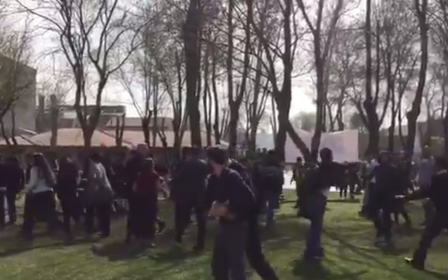Turkey plans extended state of emergency, raids defence firm

Turkish authorities on Thursday announced plans to extend a state of emergency until 20 July and ordered the arrest of 84 people, including employees of Turkey's defence contractor ASELSAN, as part of the investigation into last year's failed coup.
Authorities issued detention warrants in simultaneous operations in 86 locations across four provinces, Anadolu reported, adding that 43 of the suspects had so far been caught. It said the suspects were being sought on charges of "leading or being a member of an armed terrorist organisation".
Meanwhile, an unconfirmed number of Turkish diplomatic passport holders have sought asylum in Switzerland, the Swiss newspaper Tages Anzeiger said. Among those seeking asylum is Volkan Karagoz, who was acting ambassador to Bern on the night of the coup attempt.
He was later suspended on suspicion of being a Gulenist.
Since the July coup attempt, Turkish authorities have detained, dismissed or suspended some 120,000 people including soldiers, police officers, teachers, judges and journalists, and formally arrested nearly 40,000 people. Thousands have since been restored to their posts.
Companies with ties to the Muslim cleric Fethullah Gulen, whom President Tayyip Erdogan and the government accuse of orchestrating the coup attempt, have also been targeted in the crackdown. Hundreds of companies, for the most part smaller provincial firms, have been seized.
The cleric, who has lived in self-imposed exile in Pennsylvania since 1999, has denied the accusations against him and condemned the coup.
In January, police detained the top legal adviser and a former chief executive of Dogan Holding, one of Turkey's biggest conglomerates.
The government has also appointed administrators to several companies through executive decrees following the abortive putsch.
Emergency rule declared after the coup attempt enables the government to bypass parliament in enacting new laws through decrees and to limit or suspend rights and freedoms when deemed necessary.
Middle East Eye propose une couverture et une analyse indépendantes et incomparables du Moyen-Orient, de l’Afrique du Nord et d’autres régions du monde. Pour en savoir plus sur la reprise de ce contenu et les frais qui s’appliquent, veuillez remplir ce formulaire [en anglais]. Pour en savoir plus sur MEE, cliquez ici [en anglais].




